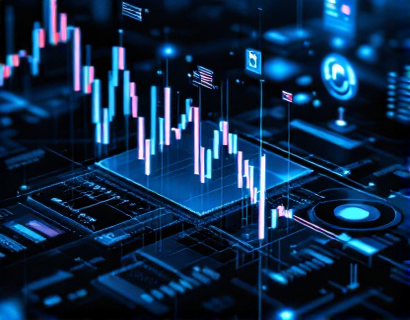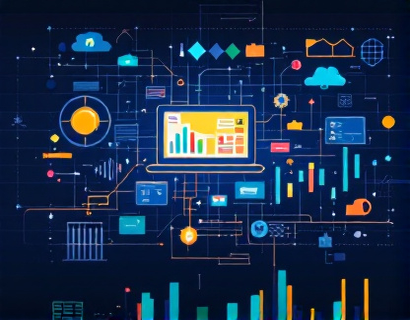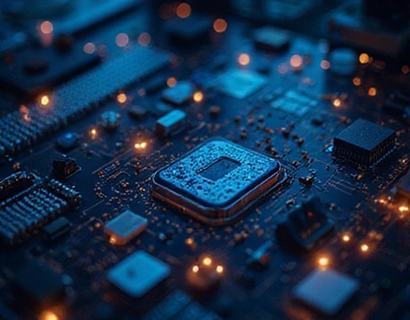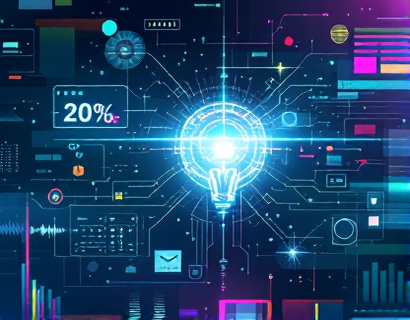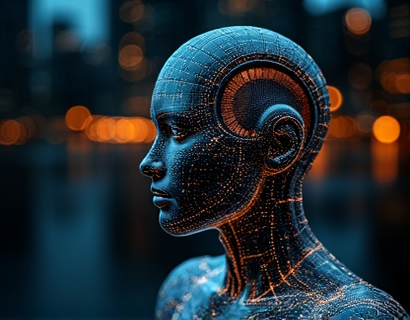AI and Crypto: Revolutionizing Digital Finance and Tech for Enhanced User Experiences with Smart Solutions
The intersection of artificial intelligence (AI) and cryptocurrency is creating a transformative wave in the digital finance and technology sectors. As these two powerful forces converge, they are not only enhancing user experiences but also setting new standards for innovation and efficiency. This article delves into the revolutionary impact of merging AI with cryptocurrency, exploring innovative solutions that are reshaping the landscape of digital services.
The Rise of AI in Cryptocurrency
Artificial intelligence has emerged as a game-changer in various industries, and the cryptocurrency sector is no exception. AI technologies are being integrated into cryptocurrency platforms to improve decision-making processes, enhance security, and optimize trading strategies. By analyzing vast amounts of data, AI can identify patterns and trends that human traders might overlook, leading to more informed investment decisions.
One of the most significant applications of AI in cryptocurrency is in the realm of trading bots. These automated systems utilize machine learning algorithms to analyze market data in real-time, executing trades based on predefined criteria. This not only increases the speed of transactions but also minimizes the emotional biases that often affect human traders. As a result, users can benefit from more consistent and profitable trading outcomes.
Enhancing Security with AI
Security is a paramount concern in the cryptocurrency space, given the prevalence of hacks and fraud. AI plays a crucial role in enhancing security measures for digital assets. Machine learning algorithms can detect unusual patterns of behavior that may indicate fraudulent activity, allowing for real-time alerts and interventions. This proactive approach to security helps protect users' investments and builds trust in cryptocurrency platforms.
Moreover, AI can assist in the development of advanced encryption techniques, making it more difficult for malicious actors to compromise user data. By continuously learning from new threats, AI systems can adapt and evolve, ensuring that security measures remain robust against emerging risks.
Smart Contracts and AI Integration
Smart contracts are self-executing contracts with the terms of the agreement directly written into code. The integration of AI with smart contracts can significantly enhance their functionality. For instance, AI can be used to automate the execution of contracts based on real-time data inputs, ensuring that all parties fulfill their obligations without the need for intermediaries.
This automation not only streamlines processes but also reduces the potential for disputes, as the terms of the contract are executed precisely as programmed. Additionally, AI can analyze historical data to predict outcomes and optimize contract terms, making smart contracts even more effective in various applications, from supply chain management to real estate transactions.
Improving User Experience through Personalization
Personalization is a key factor in enhancing user experiences in the digital finance space. AI can analyze user behavior and preferences to deliver tailored recommendations and services. For example, cryptocurrency wallets can utilize AI to suggest optimal investment strategies based on individual risk tolerance and financial goals.
Furthermore, AI-driven chatbots are becoming increasingly popular in customer support for cryptocurrency platforms. These intelligent systems can provide instant assistance, answering user queries and guiding them through complex processes. By offering personalized support, platforms can improve user satisfaction and retention.
Decentralized Finance (DeFi) and AI
The rise of decentralized finance (DeFi) has opened up new opportunities for the integration of AI. DeFi platforms aim to eliminate intermediaries in financial transactions, allowing users to engage directly with one another. AI can enhance the efficiency and security of these platforms by automating processes such as lending, borrowing, and trading.
For instance, AI algorithms can assess the creditworthiness of users in real-time, enabling more accurate lending decisions. This not only benefits lenders by reducing the risk of default but also provides borrowers with access to funds that they may not have qualified for through traditional financial institutions.
AI-Powered Analytics for Market Insights
Data analytics is crucial in the cryptocurrency market, where volatility and rapid changes are the norms. AI-powered analytics tools can process vast amounts of market data, providing users with actionable insights. These tools can identify trends, forecast price movements, and assess market sentiment, empowering users to make informed decisions.
By leveraging AI for analytics, cryptocurrency investors can gain a competitive edge. They can stay ahead of market trends and adjust their strategies accordingly, ultimately leading to better investment outcomes. Additionally, these insights can help users understand the broader implications of market movements, fostering a more informed and engaged community.
The Future of AI and Crypto Integration
The future of AI and cryptocurrency integration looks promising, with numerous possibilities on the horizon. As technology continues to evolve, we can expect to see even more innovative solutions that enhance user experiences and streamline processes. For instance, the development of AI-driven decentralized applications (dApps) could revolutionize how users interact with blockchain technology.
Moreover, as regulatory frameworks around cryptocurrency become more defined, AI can play a vital role in ensuring compliance. Automated systems can monitor transactions for suspicious activity, helping platforms adhere to legal requirements while maintaining user privacy.
Challenges and Considerations
While the integration of AI and cryptocurrency presents numerous benefits, it also comes with challenges. One of the primary concerns is the ethical implications of using AI in financial decision-making. As algorithms become more sophisticated, there is a risk of bias in the data used to train these systems, potentially leading to unfair outcomes.
Additionally, the reliance on AI for critical financial decisions raises questions about accountability. In the event of a malfunction or error, determining responsibility can be complex. It is essential for developers and users to establish clear guidelines and protocols to address these issues.
Conclusion
The convergence of artificial intelligence and cryptocurrency is revolutionizing the digital finance landscape, offering innovative solutions that enhance user experiences and set new standards in technology. From improving security and automating processes to providing personalized services and insights, the potential of this integration is vast.
As we move forward, it is crucial to navigate the challenges and ethical considerations that arise from this technological evolution. By doing so, we can harness the full potential of AI and cryptocurrency, paving the way for a smarter, more efficient, and user-centric digital finance ecosystem.




